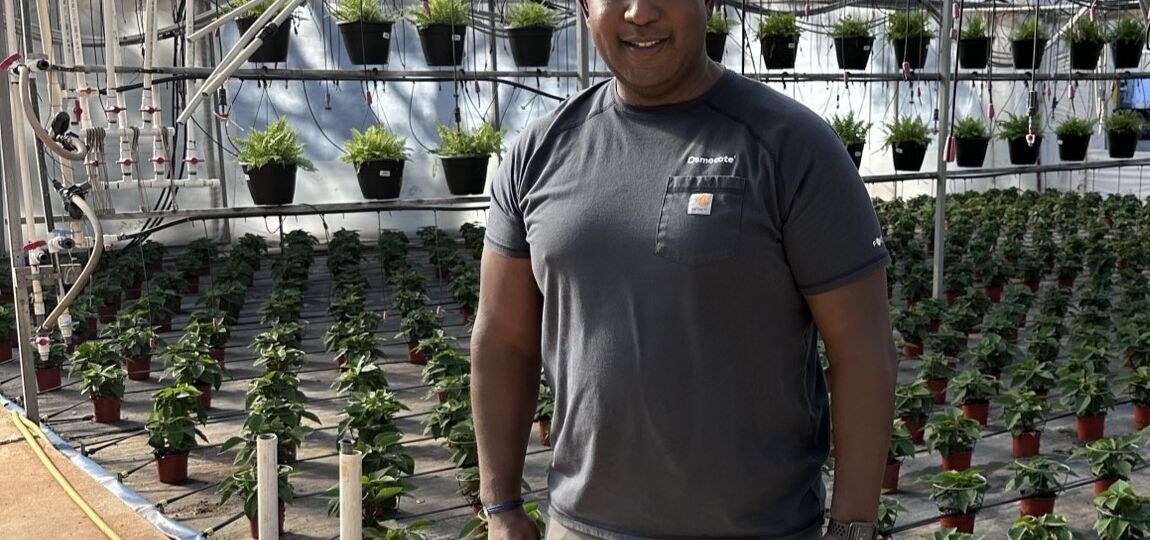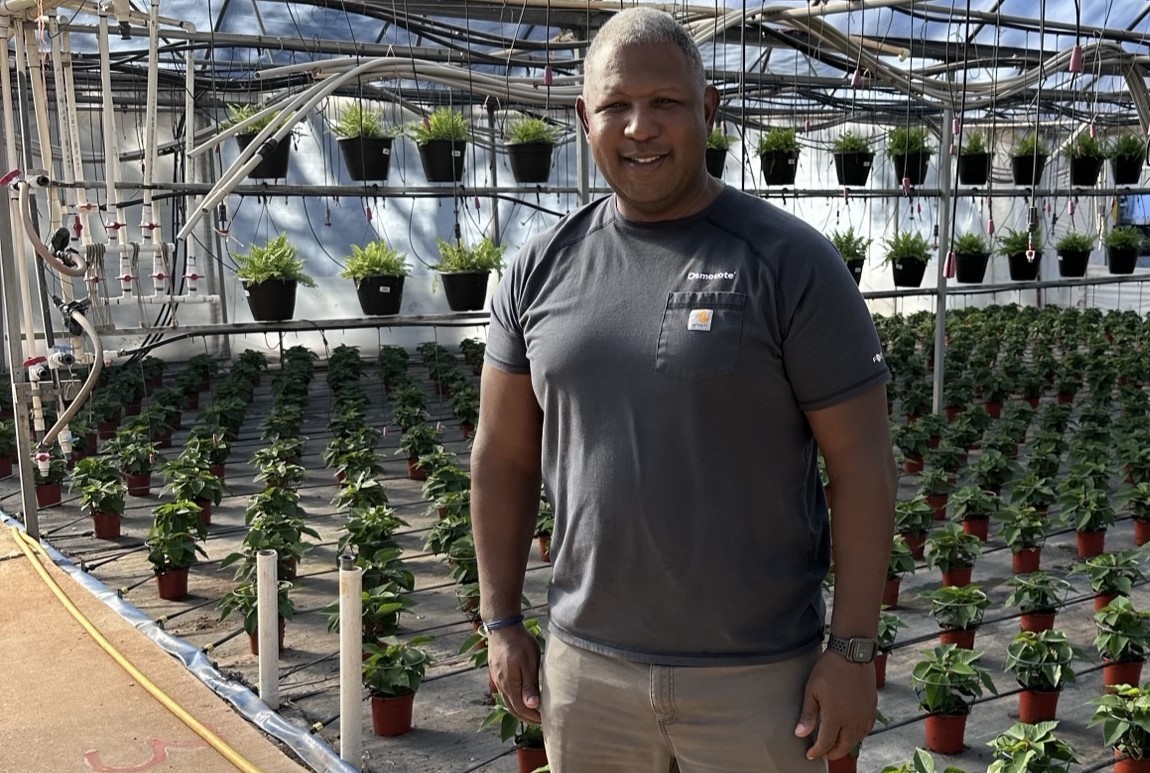

“It’s deflated and expensive for a farmer like me,” he said.
Across the country, companies that have lost cannabis licenses have filed lawsuits challenging those decisions, often delaying market rollout for months or even years. Legal disputes have proven particularly complicated in states like Alabama, where the number of cannabis businesses is capped and the application process is based on merit.
In response to the initial lawsuits, the Alabama Medical Marijuana Commission quickly reversed its initial licensing decisions, then re-awarded them in August, to the same group of winners, except one.
That only sparked more litigation, and a court order blocked the agency from issuing the licenses granted in that round. The agency adopted emergency rules last week in hopes of obtaining licenses by the end of the year. But some candidates fear it will only lead to more litigation.
“This legal strategy here has been death by a thousand cuts,” said Brian Vicente, a lawyer who works with Washington.
The legal quagmire means successful applicants cannot move forward with their business plans, keeping legal cannabis out of reach of patients more than two years after Alabama lawmakers passed a law establishing the program.
Alabama became one of the first states in the Deep South to legalize medical marijuana through the Legislature in May 2021. Perhaps understanding the changing political tides – 74% of voters in the Mississippi had approved a medical marijuana initiative at the ballot box in 2020 – the Republican-dominated legislature managed to pass medical cannabis legislation.
“It’s been a very long journey to get to where we are,” said Mike Ball, a former state representative who led legalization efforts in the Legislature.
Ball, a former police officer, did an about-face on the issue after receiving an email from a woman whose granddaughter found relief from her epileptic seizures using cannabis oil. When he first introduced cannabis legislation, Ball recalls, other lawmakers reacted as if “I was unleashing cannabis smokers, making them run naked through the streets.”
Despite this distrust, he spearheaded efforts to pass a low-THC cannabis oil bill in 2014, which helped pave the way for legalization of a program complete medical.
Cannabis entrepreneurs and attorneys who worked on applications to Alabama’s medical program described the process as follows: the most rigorous of all national marijuana markets.
Applicants were required to submit detailed drawings for everything from HVAC systems to plumbing systems. Those who applied for the five vertically integrated licenses — which allow companies to grow, process and sell marijuana — also had to prove they had $250,000 in the bank.
Nearly 40 applicants, including Washington, attempted to obtain an integrated license. Washington, who is black, had been courted by about a dozen potential business partners seeking to enter the Alabama market.
“First, they knew I could grow,” he said. “Secondly, they knew my ethnicity would help them. »
Alabama’s medical marijuana law requires that one of five integrated licenses be awarded to a minority-owned business. A quarter of licenses in other categories like culture and retail are also reserved for minority-owned businesses.
Washington ultimately decided to collaborate with Chuck Smith, an industry veteran who co-founded Dixie Elixirs in Colorado in 2009. Smith introduced Washington to Vicente, an attorney who helped draft Colorado’s legalization initiative passed in 2012 and co-founded legislation focused on cannabis. farm.
Initially, Smith said he was concerned about possible “backroom dealings and collusion that so many states are accused of.” Cannabis corruption scandals have affected many cannabis markets, from liberal states offering recreational weed to conservative states with restrictive medical programs.
But Smith’s initial concerns were assuaged by the way Alabama implemented merit-based licensing, hiring third-party evaluators for a blind grading process. The identity of the raters is unknown to the public, preventing candidates from seeking to influence their scores.
But that hasn’t stopped the process from getting bogged down in a wave of lawsuits.
The AMCC’s cancellation of licenses and the settlement negotiations in response are causing concern among applicants who have obtained licenses. And now neither critics nor defenders of the agency’s licensing decisions are happy with the emergency rules aimed at moving the process forward.
Warren Cobb, co-owner of Sustainable Alabama, has been licensed twice. He fears the emergency rules will unfairly favor some applicants over others and lead to even more litigation.
The AMCC says it has to go through the legal process that all the litigation has entailed.
“We participated in these discussions in good faith; we listened to all sides,” Justin Aday, general counsel for the AMCC, said in an interview.
Some companies, however, question whether these lawsuits raise legitimate legal concerns. They worry that some litigants are following a familiar pattern of challenging licensing decisions in hopes of eventually getting a license.
“The lawsuits seemed more like technicalities than substantive issues,” said Vincent Schilleci, legal director for CCS of Alabama, which has been granted a dispensary license twice.
One plaintiff, Alabama Always, filed four different lawsuits against AMCC.
William Somerville, attorney for Alabama Always, disputes that the lawsuits are not substantial. Alabama’s medical marijuana law requires cultivators to begin growing within 60 days. Somerville points out that Verano Holdings, one of the first-round license winners, admitted in court that it had not started building its facilities, meaning it would not be able to meet this requirement.
“This proves to me that scores are not just a technical issue, it’s a substantive issue,” Somerville said.
Rumors are swirling that if the medical program fails to move forward by the time the Legislature reconvenes in January, lawmakers could scrap the entire program or open a free license for all.
“This needs to be addressed before the Legislature gets involved,” Ball said. He called on the AMCC to “grit its teeth, do its best and issue these damn licenses”.
Meanwhile, a judge recently said he is considering changing the temporary restraining order to allow applicants who have applied for types of permits that are not challenged in court — like lab tests and transportation – to move forward.
This still wouldn’t speed up the launch of the program. On Thursday, the GCCA will consider rescinding its second set of permitting decisions from August.
Washington, for its part, is eager to get into medical cannabis cultivation, which will allow its operation to diversify. He says growing cannabis isn’t much different from other plants, comparing it to “half tomato, half poinsettia.”
Shore Acres Plant Farm in Theodore, Alabama, has overcome various challenges since Washington’s grandfather began selling azaleas in coffee cans from the back of his truck in the 1940s. The family business has eventually started selling its products to local stores. As they were replaced by big box chains, Shore Acres became a supplier for Walmart. She nevertheless retained her small showcase for the community.
But it’s unclear when Washington will be able to put its horticultural skills to work for Alabama’s medical marijuana program.
“It restricts the products that (patients) could receive at this time,” Washington said. “I have to keep the faith and keep moving forward. »

